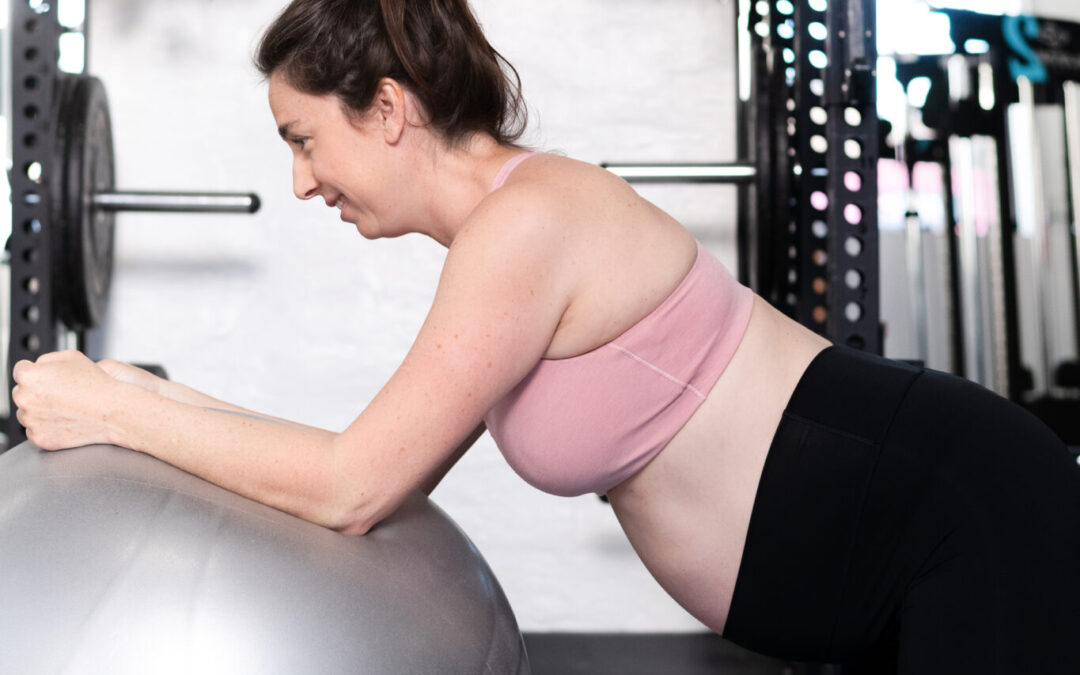What To “Really” Expect
My passion for Prenatal & Postpartum began in grade 9 when, for Take Your Kid to Work Day, I chose to go to a family friend’s workplace at the NICU ward. It wasn’t until I was there that I realized that not only was it fulfilling being around babies all day, but so was the bond I saw between the parents and their new baby. Since that day, I got curious about the jobs of a NICU and Labor & Delivery nurse and started taking the courses necessary to pursue a career towards those roles.
My curiosity led me to volunteer at Mount Sinai Hospital’s NICU ward after high school. In the 8 months I spent there, I watched procedures, attended education sessions with nurses and doctors and even had the opportunity to observe deliveries.
As life would have it, my plan of going into nursing school and returning to Mount Sinai as a nurse completely halted and I had to start working towards a new career path. I soon realized that fitness, another one of my passions, was something I could envision myself not only excelling at but enjoying as a career. As my journey towards being a Personal Trainer began, I saw an opportunity to combine my love for Pre- & Post-Natal and fitness. And in 2021, I committed to becoming a Certified Pre- & Post-Natal Coach!
Now that you have my background, let’s get into what Pre- and Postpartum training is all about and why IT IS SO IMPORTANT.
There are many benefits of training during the prenatal phase (week 1 to week 40)! Some can include:
- Reduced risk of gestational diabetes and preeclampsia (high blood pressure related to pregnancy)
- Prevents or improves symptoms of depression
- Decreases risk/severity of low back pain
- May reduce risk of Cesarean birth
As for training in your postpartum phase, some can inclue:
- Improved energy levels
- Promotes better sleep
- Helps to prevent postpartum depression
- Prepares new parents for functional movements they will do with their new baby in daily life (i.e. carrying a baby in a car seat or upstairs)
The most important thing to note about prenatal and postpartum training is that every individual’s experience is going to be different and that is okay!
Have you ever heard any questionable comments made about training during and/or after pregnancy? I’ve got a few of these myths that I’m ready to debunk!
Myth #1: It is not safe to do abdominal movements during pregnancy.
It is not only safe but highly encouraged to do (intelligent) core exercises because it teaches parents to control their spine in a neutral position and to experience how a strong, supported spine feels. Examples of core exercises that are safe to include in a prenatal training program are pallof presses, standing band chop, bird dog and farmer’s carry.
Myth #2: Cardio is dangerous for the baby.
Training for your cardiovascular health is actually beneficial for both the parent and baby! Improving aerobic fitness through cardiovascular exercise increases the body’s ability to handle the physiological and psychological stresses that come with pregnancy. Walking, swimming, hiking and low-impact aerobics are all great ways to do this!
Myth #3: It is normal to pee when laughing, coughing, sneezing, jumping, etc. during postpartum.
Although common, this is not normal. A structured training program that prioritizes proper breathing mechanics and pelvic floor strengthening exercises should work to balance the tone of the pelvic floor which will ensure better muscle function. Along with the help of a certified coach, it is also highly recommended for new parents to see a pelvic health physiotherapist to help with any pelvic floor dysfunction.
Training through each trimester looks a bit different but one rule applies to all: listen to your body.
There are many physiological and physical changes happening during this time so if your body is telling you to slow down, listen to it.
During the first trimester, the focus of training is to increase overall strength, increase/maintain muscle mass, strengthen your core and pelvic floor. At this point during pregnancy, fatigue, nausea, morning sickness, dizzy spells and shortness of breath are common, so extra rest periods may be necessary.
The second trimester is all about good alignment and posture and maintaining strength and cardiovascular fitness. It is also during this time that most pregnant clients will experience lightheadedness if they lie flat on their back so some exercises will need to be modified to be on an incline.
The intention of the training program in the last trimester is to maintain a comfortable level of activity, reduce discomfort, incorporate birth-preparation exercises like pelvic floor relaxation exercises and minimize downward pressure on the pelvic floor and bulging of the anterior core. Clients may be experiencing Braxton-Hicks contractions and sharp groin pain so longer rest periods, stretching and mobilizing will be necessary.
So what happens after the baby is delivered? Should postpartum clients just go back to how they were training pre-pregnancy?
No, they shouldn’t. The birthing process is quite the experience physically and psychologically and the body needs time to rest and heal. Most importantly, training should not start again until the client has been cleared by their doctor. Once postpartum clients have been cleared and are ready to ease back into training, it is recommended to start with gentle movements and breathing exercises. Walking is a great activity to do before getting back into training not only to get outside but if done without the stroller, it gives new parents the opportunity to slowly work on their arm swing and trunk rotation.
With the help of a Certified Postpartum Coach, clients can start to focus on basic stretching and mobility and optimal alignment of the spine and pelvis. The amount of time before postpartum clients start to add resistance varies person to person but once it is safe and the client is ready, I would begin to focus on everyday functional movements like a squat, lunge, hinge, carry and rotation. These movements will mimic squatting to pick up a pacifier that fell, carrying the car seat from the car to the house or hinging to reach into the bassinet. The goal of postpartum training during the first couple of months is to make those daily movements feel easier for new parents.
I understand how prenatal and postpartum training can feel a bit daunting in the beginning with all of those new changes happening. With the right coach and support system, you CAN become a stronger, healthier version of yourself not only for you but for your baby as well!
If you’re looking for support in your prenatal or postpartum journey, you’ve come to the right place! Head here to get connected, I would love to work with you to help you become your strongest self!

CHERISE
Strength Training Coach
Cherise has a passion for helping you unlock your strongest self both mentally and physically. In Personal Training, she will educate, motivate, and hold you accountable so that you can reach your goals. Your wellness is our top priority!
Cherise is a certified in Personal Training, Pre- and Post-Natal Specialist, and much more!
Click here to read more on Cherise or keep scrolling to get started in Personal Training!
Transform Your Fitness Journey with All Day Fit
All Day Fit’s programs not only get you strong efficiently, but safely as well. Click below to learn more or join today!


Recent Comments